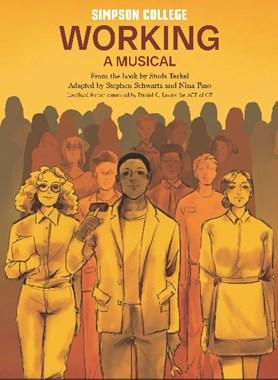Nepalese students regain contact with families
February 17, 2005
Simpson College may often seem sheltered and isolated from the world, but recent events in Asia have upset the homeland of eight Simpson students.
On Feb. 1, the king of Nepal disbanded the national parliament and assumed direct and total control of the country.
“Basically Nepal is cut from the rest of the world,” said Steven Emerman, assistant professor of geology. “The king basically dismissed his own government. It was a coup against his own government.”
However, the Nepalese students here aren’t alarmed by the political turmoil in their homeland.
“For the students, it is difficult feeling that almost nothing can be done,” said Walter Lain, assistant dean for multicultural and international affairs. “They are concerned about what is going on, but they feel there is a relative calm. It’s hard when they’re so far away.”
According to seniors Om Gurung and Shristi Upreti, turmoil at home has been the norm for them in recent years.
“It’s normal right now,” Gurung said. “I don’t know what’s going to happen in a few months or a few days because the military and police have banned demonstrations and the politicians are on house arrest.”
The students are unsure about what is happening in the country right now.
“I’m confused because I don’t know what this will lead to,” Upreti said. “There are lots of human-rights violations, but there were human rights violations before this also.”
According to the Associated Press, the king has done this before. This governmental coup, however, is slightly different.
“This time it’s being done with such a show of force,” Emerman said. “They basically have done the coup in such a way as to prevent any protest or reaction. There has been a complete elimination of freedom of the press. People can’t organize or communicate with each other. It has basically made Nepal into a fortress.”
Nepal adopted democracy in 1990, but according to the BBC, Maoist rebels have been fighting for communism for years and parliament has been plagued with corruption.
“The government has been corrupted from the moment in 1990 [when it was established],” Upreti said. “It got corrupted, out of hand.”
After the royal family was massacred in 2001, King Gyanendra took control of the country.
“In October 2002, he sent the whole government home,” Emerman said. “He basically abolished the parliament and assumed absolute power.”
The king allowed a provisional government to hold new elections and reinstate democracy, but assumed absolute control again Feb. 1.
King Gyanendra took away freedom of the press, speech, expression, assembly and privacy, among many others, according to the Associated Press.
All Nepalese communication lines were severed, but phone lines were reconnected on Feb. 8.
Before international phone lines were reopened, Nepalese students had to rely on updates from the press.
“I’m reading the same news that Americans are reading,” Upreti said. “I try to go a little more extensive though. I look at the Indian pages because they’re a little more updated.”
According to Upreti, the Internet connection to Nepal was restored before the phone lines, and she was able to talk online to a friend in Nepal.
“She said that all of the Internet services were being monitored, even the e-mail exchanges,” Upreti said. “There’s lots of beefed-up security. She didn’t tell me a lot of things.”
Both Upreti and Gurung feel secure about their families being in Nepal after contacting them.
“As far as I know, the people who weren’t corrupted during the 15 years democracy, who didn’t amass wealth by corruption, would be safe,” Upreti said. “My family is not politically involved, so it should be pretty safe for them.”
Regardless of the turmoil at the moment, seniors Aimee Luhrs and Kristine Robson and Emerman plan to travel to Nepal to study the quality of water near Mt. Everest in the end of May.
Emerman said they shouldn’t be in any danger.
“It’s really no different than it always is,” Emerman said. “Neither of the sides has wanted to bother with foreigners.”
Gurung and Upreti both plan to return home following graduation.
“Right now, there is no way that we can do anything,” Gurung said. “We can just hope that the future will be fine.”





